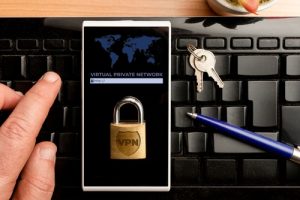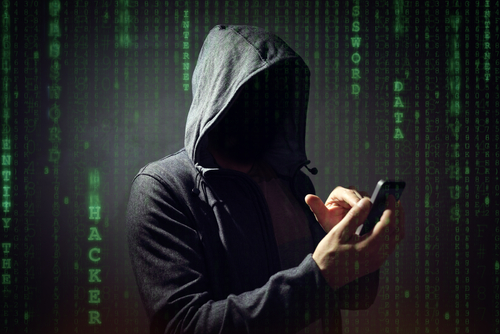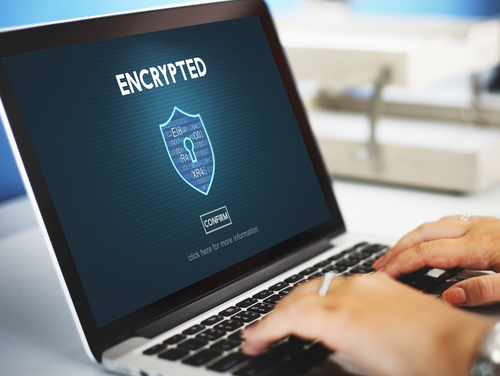So, you want to make sure you are protected while online. Will a VPN keep you safe? Many people use VPNs to improve their cybersecurity. A VPN offers an encrypted tunnel that protects data during transit.
Paired with antivirus software and other safe internet practices, a VPN can improve your internet security.
Let’s discover the ways that VPNs protect you online.

What is a VPN?
A VPN, or virtual private network, is a way to create a secure internet connection between your device and the internet. VPN hides your IP address and makes your actions online difficult to trace back to you. VPNs provide encrypted connections that offer you more online security.
In fact, VPN users worldwide cited security as their number one reason for using this service. The way a VPN works is to sign up for a VPN service, there are free VPNs out there, but they are usually extremely limited. Others like NordVPN, OpenVPN, or Surfshark will cost money for a subscription; some are more affordable, and others are costly.
You will want to research your options to find the best service, prices, and security. The best VPN providers will be compatible with your favorite operating systems such as Microsoft Windows and MacOS. There are also several that are compatible with mobile devices such as Android and iPhone.
Once you have selected a VPN provider, you will log in to their service before you connect to the internet. Some VPNs will require a special router to run. Others will have VPN apps that you can connect to. Then if, for example, you want to navigate to a shopping website such as Amazon, your computer would first route the request to the VPN server, which is in another country.
The site would safely download on that server and then get routed to you. Since the VPN server is shared by a large group of people, it would be incredibly difficult to trace the online activity to your real IP address.
What Do You Use A VPN For?
There are several reasons people use VPNs besides security. Around 15% of people surveyed use VPNs for both personal and business uses. VPNs can offer you options for a better online experience.
#1 Secure Web Surfing
As previously stated, most people use VPNs to protect themselves while they are surfing the internet. Whether you want to keep people from placing trackers on you to learn your online browsing history, or you want to keep hackers at bay, VPNs can provide an additional layer of security
When you access public Wi-Fi networks, you make your device vulnerable. Many public Wi-Fi have few restrictions, so anyone can access these, which means that hackers can be sitting in the same location ready to pounce. If you have a VPN secure connection while on public Wi-Fi, you are improving your online privacy.
#2 Enhanced Streaming Ability
Many people use secure VPNs for streaming. If you travel a lot, you may have discovered that different countries have different streaming content, even on the same streaming platform. Some countries even restrict certain content. So, if you want to access streaming content that is unavailable in your country, you can use a VPN to bypass these geographic restrictions
Many VPN service providers have different servers to choose from in many countries throughout the world. You can connect to a specific country and the streaming app, such as Netflix, will think you are accessing the content from that country and will let you view it.
Some governments in other countries such as China, also place restrictions on streaming services. VPN connections help bypass these restrictions. Also, if you just want to access applications and content you normally get when in your home country while traveling, a VPN can help you get access to that content, as well.
#3 Avoid Throttling
Internet service providers (ISPs) can throttle your connection to make it a slower speed than advertised. They do this for a couple of reasons. One is to redistribute the bandwidth during high-traffic hours to make sure the connection is more even for a larger number of customers.
The second reason is that it is more underhanded. They can throttle your connection to make it slower and coax you into upgrading your service to get higher speeds. A VPN confuses your ISP because it cannot read your IP Address, so you do not get affected by this slower speed.
#4 Improve Gaming
A VPN can also be used to improve your gaming experience. A VPN can add another layer between you and other players you are gaming with around the world. It protects you from attacks directed at you in retaliation for beating other online players at the game.
Many workplaces and school buildings have blocks on the internet to prevent you from gaming while in these locations. With a VPN, you can get past these blocks. A VPN can also keep pop-ups from disturbing your gaming.
You can also access geo-specific content that may be locked due to copyright issues or other blocks, such as getting exclusive content only available in certain countries. People also use VPNs for torrenting. The tradeoff is occasionally that some VPN servers have slower download speeds and reduced functionality, but if you get a good VPN host you can sometimes even improve your download speeds.
How Can a VPN Protect You Online
So, now that you understand why people seek out VPNs to improve their cybersecurity, how does a VPN protect you specifically online? There are several specific types of attacks that VPNs are best equipped to prevent.
Man-in-the-middle Attacks
When a hacker intercepts, views, or tampers with your data while it is in transit, this is called a man-in-the-middle attack. This type of spying can give cybercriminals access to your personal data, and it is an invasion of your privacy
However, if you are using a VPN on your device, your internet activity will be sent through an encrypted tunnel during transit. So, a hacker who tries to intercept your data while traveling will find the data impossible to read.
DDoS Attacks
Distributed Denial of Service attacks are when people flood a network with fake internet traffic to overload a server and crash websites. Gaming communities often experience this problem. The goal is to knock players out of the game to remove them from the competition. Since a VPN masks your IP address, an attacker can’t target our network with this type of attack.
Fake Wi-Fi Hotspots
Another way that hackers try to gain access to your personal data is by setting up fake public Wi-Fi hotspots. They pretend to be Wi-Fi connections for a legitimate business. Then, when you access it, the scammer will be able to see all your sensitive information.
The encryption protocols of your VPN will scramble your data before it leaves your device, so even if you connect to one of these fake hotspots, the hacker will not be able to read that data.
The Limitations of VPNs
VPNs do not protect you against all cyberattacks. Even when using a VPN, it is important to protect yourself from cyber-attacks with additional security protocols. VPNs cannot protect you if your phone has been directly accessed or if the hacker is waiting on the other side when your data arrives at its destination.

Malware and Phishing
Hackers are clever and can exploit your weaknesses. They can pose as companies and people you trust. It is important to avoid clicking on links. Also, avoid downloading attachments in suspicious emails. You should always double-check the sender every time you open an email.
Usually, a hacker will scam you by getting you to believe that there is some emergency you need to take care of, like a compromised account. Once a phisher gets you to open the email, the links or attachments within the email may download malware onto your device.
VPNs cannot protect you from this. It is important to recognize the signs of a phishing email and to be cautious when clicking any pop-ups on your computer or opening any suspicious emails. You also need to be careful what you share on social media.
Many of the fun and cute personality quizzes can give scammers the information they need to guess your passwords and security question answers. The main goal of phishers is monetary gain. They will try to get your credit card and bank account numbers or to access other financial information.
Ways to Enhance Your VPN Experience
Even though VPNs cannot protect you from every cyberattack, there are best practices you can follow to pair with your VPN to enhance your cybersecurity. You will want to make sure to keep your browser and operating systems up to date. These newer versions will have stronger protections against scammers
Also, install additional antivirus protection on your devices. VPN providers occasionally have additional features such as anti-malware software, antivirus protection, and firewalls to further protect you. When you search for a good VPN provider, consider whether they can offer these additional services.
You can also enable two-step authentication (2FA). This will put up an additional barrier that a hacker has to overcome to steal your identity. With 2FA, when someone attempts to log into one of your accounts, you’ll be sent a single-use passcode.
If you are the actual person trying to log into the account, you can use this passcode to verify your identity. If you get the passcode and you didn’t initiate the login, you’ll know that someone is trying to hack your account, and you can change your passwords.
Also, make sure to be wary of all suspicious pop-ups, emails, and fishy-looking websites. These can install malware onto your devices. If it has grammatical errors or is from someone you don’t know, you shouldn’t trust it.
Always double-check domain addresses and email senders to make sure that they are from the person they claim to be. Phishers often use email addresses and web domains that are like trusted companies to trick people into clicking their links and giving away their personal information.
Make strong passwords and change these passwords regularly. Passwords should be over 12 characters long and contain numbers and symbols in them. Don’t make your password something easy to guess like your middle name or your birthday.
The same rules apply to numerical passcodes. A simple “1234” is way too easy to guess and can leave your devices vulnerable. You may even want to invest in a password manager service if you have a lot of passwords to keep track of or are a business.
If you pair these best practices with your VPN service, you’ll be ready to take on the internet.
SekurVPN
For a VPN to help protect your online activity, check out SekurVPN. Our proprietary technology protects your data with a multi-layered 2048-bit encrypted tunnel using HeliX technology. All communications happen within our secure Swiss servers.
Our latest data encryption technology protects your data, and our Swiss server hides your IP address. Our servers are high-speed with unlimited data, and we have a 100% company-owned infrastructure. Our VPN is easy to use and set up.
You just need to download it and tap it. You only need a single license for all your devices. With SekurVPN, you will leave no trace of what data you’re transferring, and you can navigate securely online without worrying.
Try out Sekur today
Conclusion
There are many benefits to using a VPN while surfing the web. VPNs protect your data while it is in transit. It can help protect you from man-in-the-middle attacks and internet tracking. With a VPN, you can also experience a larger breadth of content by unlocking geo-restricted streaming and hiding your IP address from vindictive gamers.
You can also avoid bandwidth throttling by your ISP. When choosing a VPN provider, be sure to check out their reputation and consider the price, services, and security they offer. Also, don’t forget to marry a good VPN provider with safe internet practices.
Then, you can have better peace of mind about cybersecurity.

